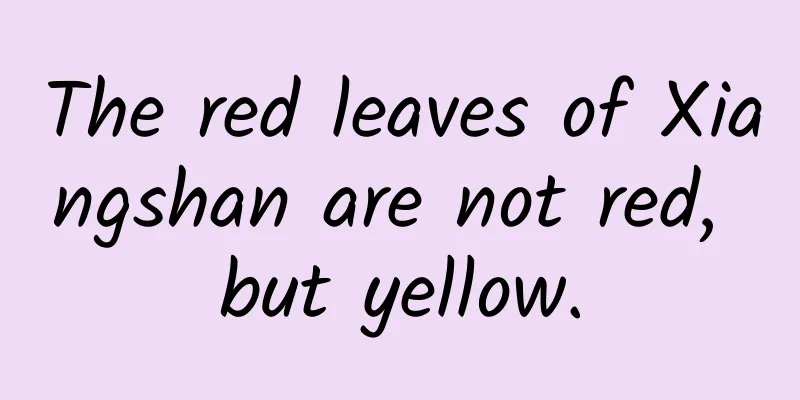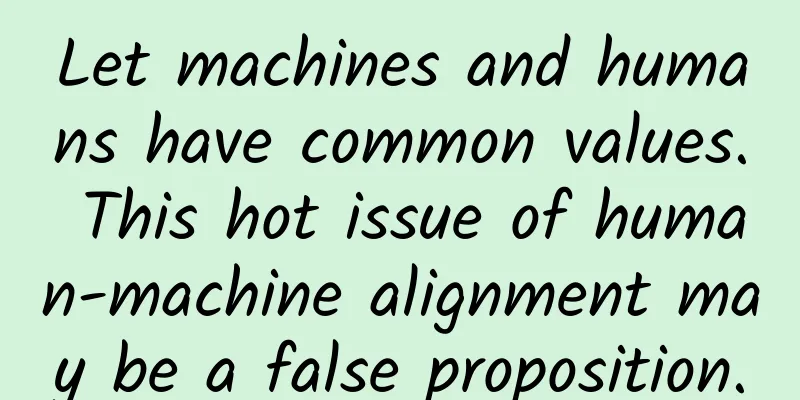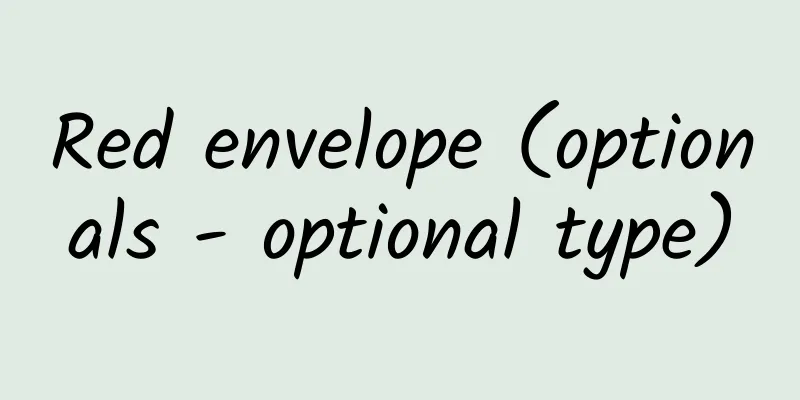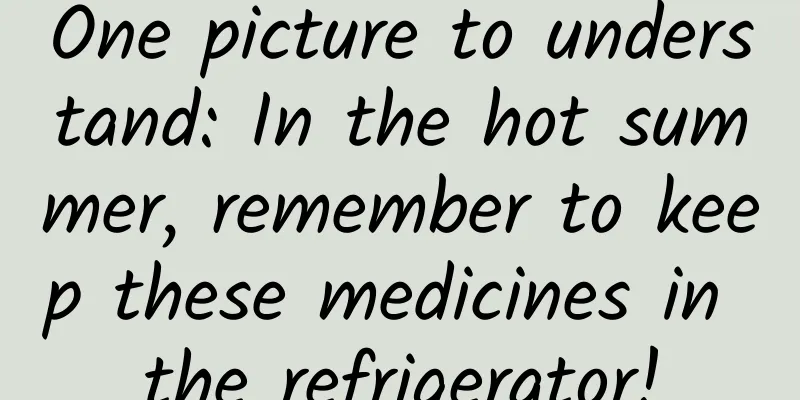Can “not eating after noon” help you lose weight? A year-long experiment found…
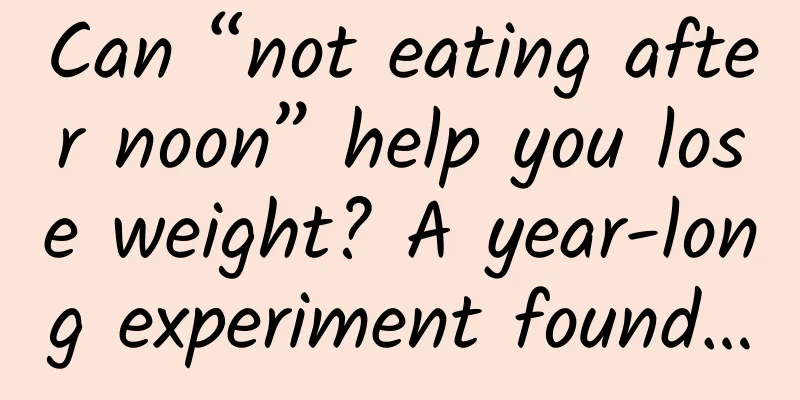
|
Reviewer of this article: Chen Haixu, Deputy Director and Master Supervisor of the Second Medical Center of PLA General Hospital What is the effect of not eating dinner on weight loss? The research team of Southern Medical University spent one year tracking 139 obese people to uncover the truth. The study conducted a one-year real-life practice on 139 obese people with a body mass index (BMI) between 28 and 45. They only needed to change their eating habits but not their exercise habits. The results of the study were published in the New England Journal of Medicine in April 2022. Screenshot of the study "Clinical study on the effect of calorie restriction combined with time-restricted eating and simple calorie restriction on weight loss" All participants in the study were divided into two groups, one of which did not consume any calories after 4 p.m. ▶ Time and calorie restriction: There is a saying in Chinese culture that "no eating after noon", so the time for restricting diet in the experiment was selected from 8:00-16:00. Outside the 8-hour restricted eating period, only calorie-free beverages are allowed. ▶ Unlimited time and calorie restriction: This group does not restrict any eating time, but all receive the same energy restriction as the previous group. Specifically, after energy restriction, their calorie intake accounted for about 75% of their daily calorie intake before intervention, including 1500-1800 kcal/day for men and 1200-1500 kcal/day for women, maintaining a balanced dietary pattern with 40-55% carbohydrate energy supply, 15-20% protein, and 20-30% fat. They were not asked to change their exercise habits or activity levels during this 1-year period. Differences between the two dietary intervention groups After one year, more than 80% of the people fully adhered to the regimen and achieved significant weight loss results! Overall, they lost 6-8 kg in 1 year. ▶ Time and calorie restriction group: Average weight loss compared to baseline was 8.0 kg, and waist circumference of obese patients decreased by 8.6 cm; ▶ Unlimited time calorie restriction group: The average weight loss was 6.3 kg and the waist circumference was reduced by 7.2 cm compared to the baseline. Professor Zhang Huijie, the corresponding author of the study and from the Department of Endocrinology and Metabolism of the Nanfang Hospital of Southern Medical University, said that from a statistical point of view, there was no significant difference in the results of the two groups, "it can be said that the effects are the same and they are equally effective." The key to losing weight: It’s not about skipping dinner! Professor Zhang Huijie emphasized that this research result is the first in the world to clarify that the time-restricted dieting obesity treatment model mainly benefits from energy restriction. "Some studies have found that time-restricted dieting can affect the biological clock and energy metabolism changes, but our study found that reducing energy intake is more important." In the study, nutritionists provided dietary guidance to participants throughout the study, including recipes, food pairing options, etc. However, ordinary people often lack professional dietary knowledge. Moreover, for many people, skipping dinner can easily lead to hunger and make them unable to stick to it. Yu Yongchao, a nutritionist at the Nutrition Department of the China-Japan Friendship Hospital, said that skipping dinner is equivalent to a dieting behavior of reducing the number of meals. In this way, the weight value may indeed drop in the short term (about 1 month), but this rapid weight loss is actually mainly muscle and water, and the fat is not much reduced. Once you resume eating dinner, not only will you rebound, but you may even rebound more. Not only is it not conducive to weight loss, but it will lead to more weight loss, poor strength, mental depression, and decreased immunity. In addition, Wang Silu, vice president of the Inner Mongolia Nutrition and Health Promotion Association and a nutritionist, said that if you often skip dinner, you will inevitably feel hungry, which will make you feel unhappy and even affect your normal sleep at night. In addition, if you skip dinner, the gastric juice in your stomach will not have food to digest, so the gastric acid may damage your gastric mucosa, which will cause some discomfort in your stomach. Over time, you may even develop gastritis, gastric ulcers and other problems. Moreover, if you are too hungry to hold on at night, it is easy to eat a midnight snack. Lose weight, try these "weight loss tools" In fact, losing weight is not about not eating or eating less, but about eating in a proper way. Some foods can be said to be "weight loss tools" because they are not high in calories or can fill you up. In other words, the key to losing weight is to limit your calorie intake. 1. Foods rich in water Generally speaking, the higher the water content in food, the lower the calorie value. Conversely, the more dry food there is, the higher the calorie value. For example, winter melon, cucumber, lettuce, etc. have high water content and relatively low calories. In addition, we should learn to actively "inject water" into food. Nutritionist Hou Wei2 introduced that increasing the intake of high-water foods can create a "false" feeling of fullness. For example, porridge, especially mixed bean porridge and oatmeal porridge, can effectively delay hunger. Replace low-water staple foods such as rice, steamed buns, and pancakes with high-water staple foods such as thick porridge, noodle soup, pimple soup, and multi-grain rice paste, so that the calories can be diluted. If the same volume of food has more water, the calories will naturally become lower. 2. Foods that are filling and high in dietary fiber Vegetables are one of the sources of dietary fiber. They are also a source of vitamins and trace elements. Among many ingredients, vegetables and fungi and algae have the lowest calories. Nutritious green leafy vegetables, cruciferous vegetables, algae and various mushrooms that are full of dietary fiber are all good. Whole grains, beans, and potatoes are also sources of dietary fiber, but it should be noted that you should also eat staple foods to lose weight. After choosing whole grains and whole grains, you should reduce the intake of refined rice and white flour accordingly. If you are not used to eating whole grains, you can use a ratio of rice: whole grains = 3:1 and gradually transition to 1:1. 3. Light, not too stimulating to the taste buds Choose medium to low temperature cooking methods such as stewing, boiling, steaming, and cold dressing, and focus on the natural flavor of the ingredients. Do not add too many spices and condiments. Such food is light and delicious, nutritious and easy to absorb, and will not over-stimulate the taste buds and cause overeating. 4. Choose low-fat protein foods Nutritionist Xu Minjie said that the fat content of soy products is relatively lower than that of animal sources. Protein foods should be high in protein and low in fat, and should not be eaten too much. It is recommended to eat red meat (beef, mutton, and pork) at noon and plant protein or white meat at night. Source: Health Times (ID: jksb2013) This article has been authorized. Please contact the original author for reprinting. |
<<: Amazing photo: Polar bear "eats whale"!
Recommend
A review of the nine major events in the Internet industry in 2015
[[159376]] The author of this article is Wen Chen...
Recreating the “multi-grid” layout: Why is the Baliqiao site in Fangcheng, Henan Province said to be the “throat station” of the Erlitou royal capital?
Where is the important core settlement in the sou...
Breaking news: Spacewalks on the International Space Station were completely halted. The reason was that the space suit helmet was leaking?
According to media reports, on August 5, an astro...
A complete handbook for analyzing 200 companies in all biopharmaceutical sectors (70,000 words)
: : : : : : : : : : : : : : : : : : : : : : : : : ...
Traffic password for Xiaohongshu's popular notes
I recently discovered an interesting phenomenon -...
Make money together·Automatic cross-border independent station without source of goods [no plug-in provided]
Make US dollars together·No source of goods, auto...
Where does the water on Earth come from? my country's latest scientific research results provide new ideas for understanding the evolution of life
Image source: Tuchong Creative There are many dif...
Halfway through 2021, have internet celebrity brands collectively “collapsed”?
The excitement in the new consumer track reached ...
Want to ride a dragon like Dragon Queen? It's possible!
The first season of "Game of Thrones" s...
Operation and promotion of e-commerce marketing system construction
E-commerce marketing is a field with a broad conn...
New strategic key metal mineral "Niobium Baotou Mine"! The latest discovery by Chinese scientists
Recently, Chinese scientists discovered a new min...
iOS Development - Basic Framework
[[164113]] This basic framework mainly includes t...
For safety reasons, the EU requires electric vehicles to add "artificial noise"
Different from the internal combustion engines of...
Is your nose also "lazy"? You have 2 nostrils and one for breathing!
Review expert: Yuan Xiandao Beijing Anzhen Hospit...
[Dark Horse Prince] Quantitative Learning Dragon Limit Training Class July 2021 Intermediate Training Class Audio + Handouts
[Dark Horse Prince] Quantitative Learning Dragon ...


